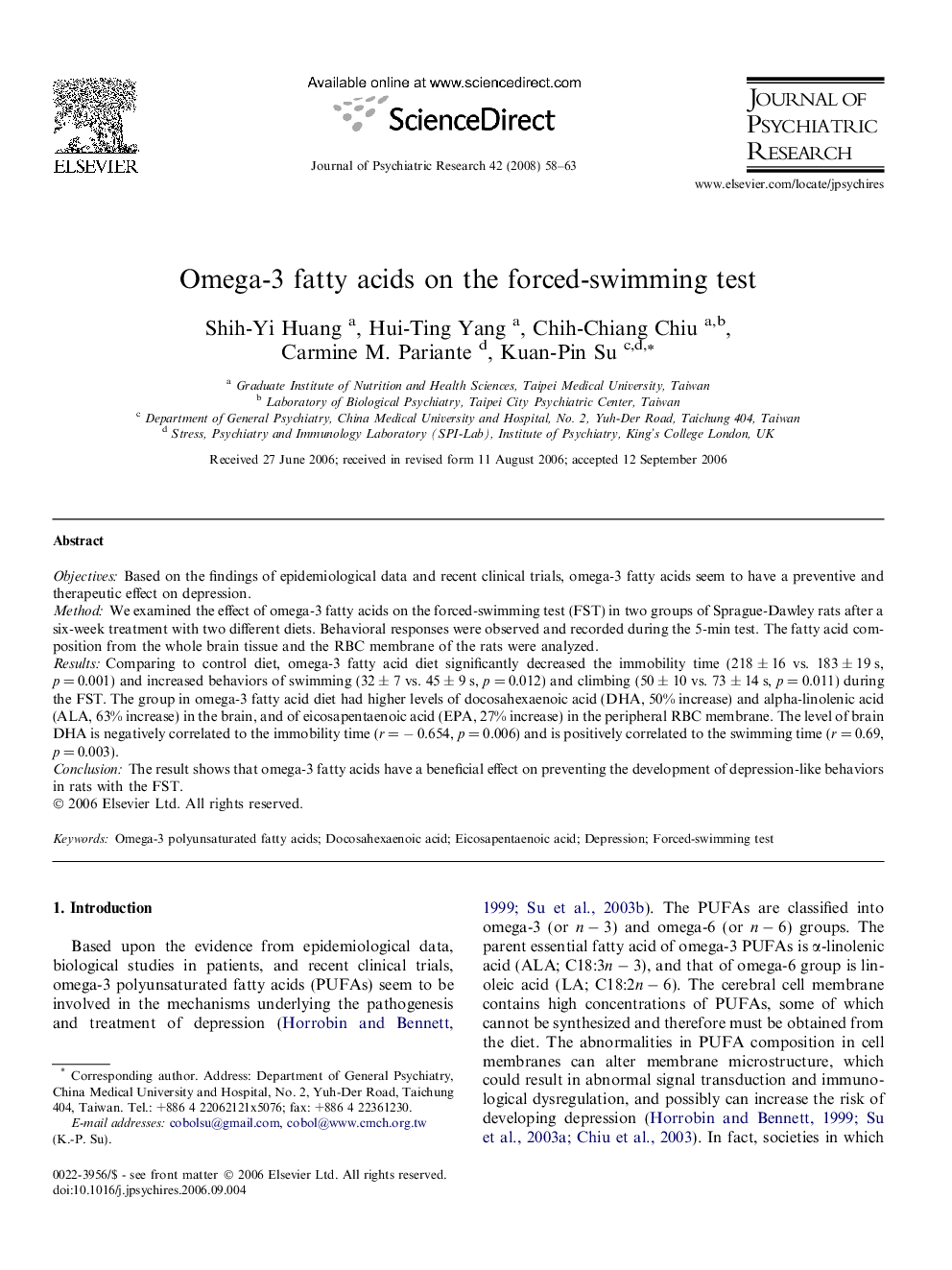| Article ID | Journal | Published Year | Pages | File Type |
|---|---|---|---|---|
| 328116 | Journal of Psychiatric Research | 2008 | 6 Pages |
ObjectivesBased on the findings of epidemiological data and recent clinical trials, omega-3 fatty acids seem to have a preventive and therapeutic effect on depression.MethodWe examined the effect of omega-3 fatty acids on the forced-swimming test (FST) in two groups of Sprague-Dawley rats after a six-week treatment with two different diets. Behavioral responses were observed and recorded during the 5-min test. The fatty acid composition from the whole brain tissue and the RBC membrane of the rats were analyzed.ResultsComparing to control diet, omega-3 fatty acid diet significantly decreased the immobility time (218 ± 16 vs. 183 ± 19 s, p = 0.001) and increased behaviors of swimming (32 ± 7 vs. 45 ± 9 s, p = 0.012) and climbing (50 ± 10 vs. 73 ± 14 s, p = 0.011) during the FST. The group in omega-3 fatty acid diet had higher levels of docosahexaenoic acid (DHA, 50% increase) and alpha-linolenic acid (ALA, 63% increase) in the brain, and of eicosapentaenoic acid (EPA, 27% increase) in the peripheral RBC membrane. The level of brain DHA is negatively correlated to the immobility time (r = − 0.654, p = 0.006) and is positively correlated to the swimming time (r = 0.69, p = 0.003).ConclusionThe result shows that omega-3 fatty acids have a beneficial effect on preventing the development of depression-like behaviors in rats with the FST.
